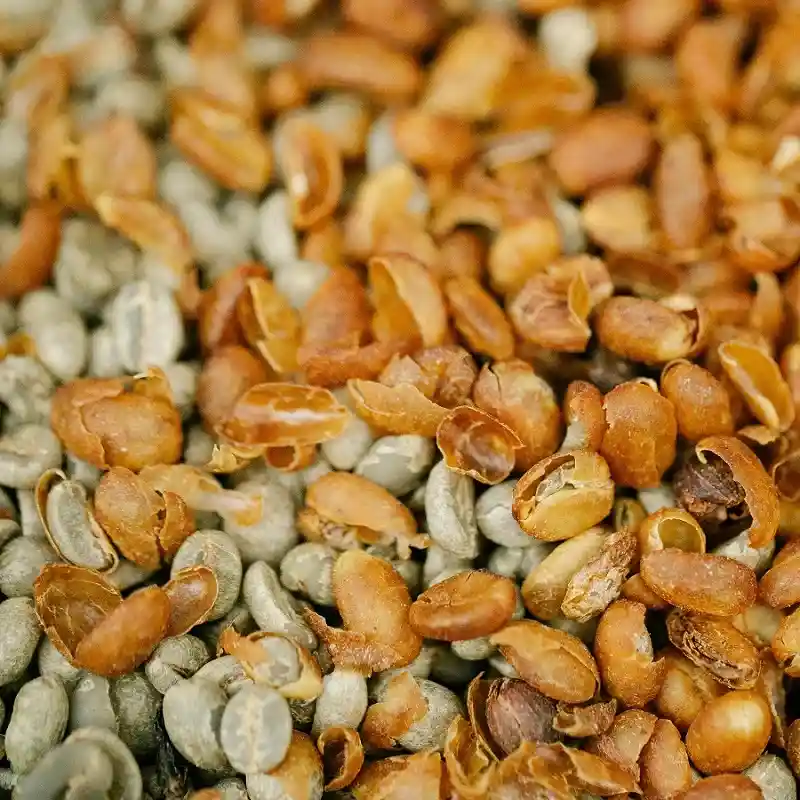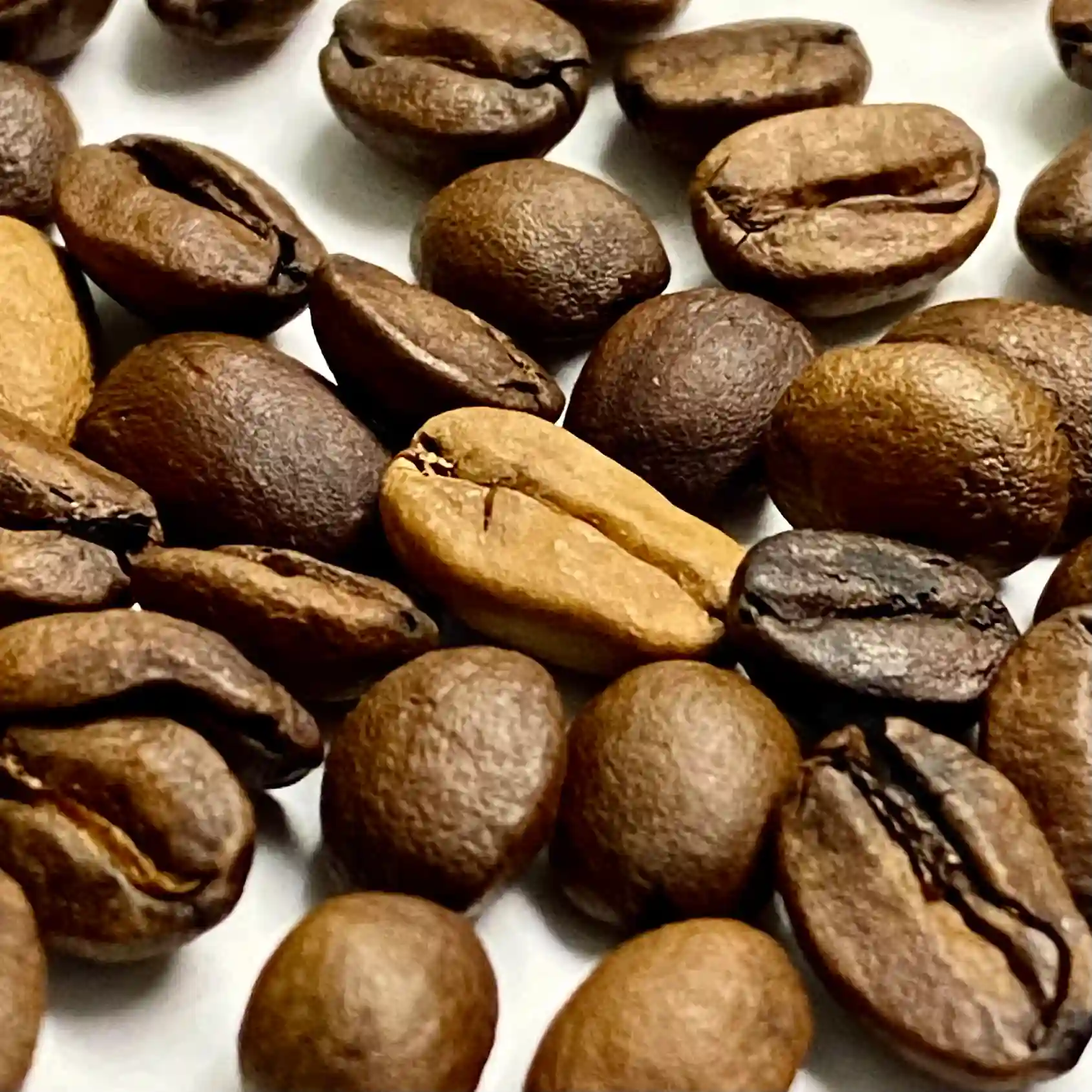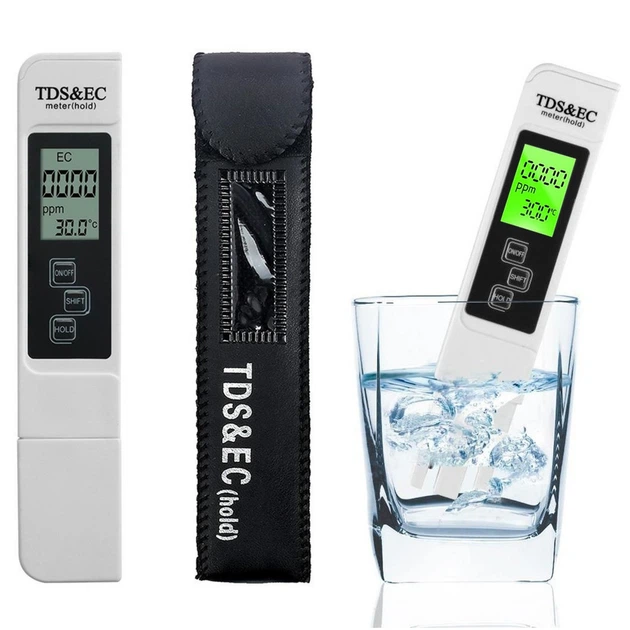What is decaffeinated coffee?
Many people can’t imagine their mornings without a cup of aromatic coffee. But what if caffeine is bad for you, or you just want to limit its consumption? Decaffeinated coffee is a regular bean coffee from which up to 97-99% of this energy compound has been removed.
Even in such coffee, some caffeine remains: one cup can contain 1-7 mg (for comparison, regular coffee contains 70-140 mg).
The nutritional value of decaffeinated coffee is almost unchanged. It contains antioxidants, polyphenols, a small amount of proteins and carbohydrates, as well as potassium, magnesium and niacin.
The taste, aroma, and appearance remain very similar to the classic, but it has a much lower stimulating effect, making it suitable for consumption at any time of the day, including before bedtime.
Decaffeinated coffee production process
There are several methods of decaffeination:
- Water – removing caffeine using hot water and filtration. This is the most natural and safe of the methods.
- Chemical – organic solvents are used, which are then removed.
- The CO₂ method is modern, efficient and environmentally friendly.
Modern technologies allow us to preserve the flavor characteristics of the original variety as much as possible.
The benefits of decaffeinated coffee
Scientific studies show that decaffeinated coffee has a number of positive effects on the human body.
First of all, it has a beneficial effect on the gut microbiome: polyphenols contained in coffee beans support the growth of friendly bacteria, thereby strengthening the immune system and improving digestion.
Regular consumption of coffee can reduce the risk of fibrosis and even cirrhosis, especially in people with an increased burden on the liver.
Another important benefit is its ability to help regulate blood sugar levels. Decaffeinated coffee is useful for the prevention of type 2 diabetes, as it helps to increase insulin sensitivity.
People who regularly consume this drink are less likely to have hypertension and coronary heart disease.
And finally, the antioxidants in the drink have the ability to neutralize free radicals, slow down cell aging, and have a positive effect on life expectancy.

Potential risks and harmfulness of the drink
There are still some risks.
For example, residual amounts of stimulant can be a problem for people with high sensitivities. In addition, chemical processing methods may leave traces of solvents, albeit within acceptable limits. Also, like any other product, decaffeinated coffee can cause individual reactions, such as allergic reactions and digestive disorders.
However, with moderate consumption, these risks and harm are minimal.
Features of the effect on the body with daily use
If you choose high-quality products, decaffeinated coffee is safe even when consumed daily. This is confirmed by numerous scientific studies that show that regular consumption of 1-3 cups per day does not cause dehydration, does not affect blood pressure, does not contribute to calcium loss, and does not have a negative impact on the cardiovascular or nervous system. Moreover, with long-term consumption, decaffeinated coffee can have a positive effect, especially for people at increased risk of developing metabolic syndrome.
Decaffeinated coffee for those who need to limit its consumption
For certain groups of people, drinking decaffeinated coffee is particularly appropriate. Pregnant women are advised to limit its consumption, and in this case, decaffeinated coffee allows you not to give up the drink entirely. It is also better for people with high blood pressure or heart disease than regular coffee. And for those who are sensitive to this nervous system pathogen – tachycardia, tremors, nervousness, sleep problems – such coffee becomes a real salvation
How to choose the right decaf coffee
To choose high-quality decaf, you should pay attention to a few things.
The first is the method of extracting this energy compound. Water treatment and CO₂ are considered the safest. Look for the appropriate markings on the packaging.
Also, pay attention to the country of origin, date of roasting, tightness of the package, and the availability of quality certificates.
Avoid suspiciously cheap options, low cost can be a sign of using a cheap chemical method.
Such brands as Swiss Water, Lavazza, Illy, and Decadent Decaf have proven themselves well.
Kyiv City Roastery offers high-quality decaffeinated beans that have been a favorite among our customers for many years.

Preparation rules and recommendations for use
You can prepare this coffee drink in any way you like: in a French press, kemex, espresso machine, or geyser coffee maker. It goes well with vegetable milk, spices (cinnamon or cardamom), and dark chocolate. To fully experience the flavor, it is advisable not to add too much sugar and syrups.
Scientific research on decaffeinated coffee
Scientists are increasingly studying the effects of decaffeinated coffee.
In 2023, a study in the Journal of Nutrition confirmed that it can lower blood glucose levels. And the European Journal of Preventive Cardiology recorded that such coffee reduces the risk of stroke.
And this is just the beginning – there is still much research to be done, especially on the impact on mental health and life expectancy.
Conclusions and practical recommendations
So, if you want to limit your caffeine intake but aren’t ready to say goodbye to coffee, decaffeinated coffee is a great alternative. It retains your favorite flavor and aroma, supports your health, and is ideal for daily consumption.






